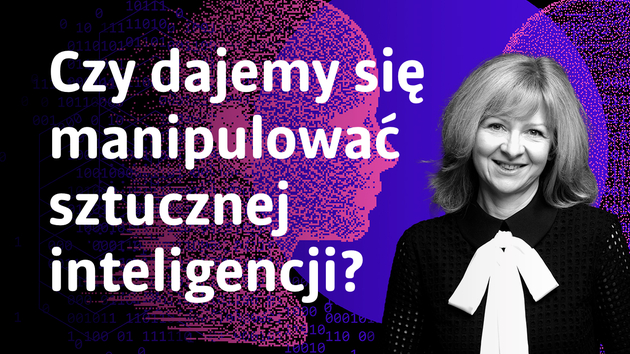Do you have the "AI gene" in you?
In the video, experts from the University of Lodz, who step by step discover the secrets of artificial intelligence and its impact on society, ask this perverse question. The researchers not only face the fear that the emerging technology arouses among people, but also present how their research is changing our understanding of what it actually is.
The issue of artificial intelligence (AI) has been increasingly present in media, scientific and social discourse in recent years. No wonder, new technologies bring unprecedented opportunities but also raise concerns mainly related to the fact that artificial intelligence will replace people at work. We encourage you to listen to our experts carefully and then... to be attentive and critical in your everyday use of the tools offered by the AI technology.
We are introduced to the world of new technologies by: Dr Dominika Kaczorowska-Spychalska, Head of the Centre for Intelligent Technologies at the Faculty of Management of the University of Lodz, Dr Artur Modliński, Head of Research on Artificial Intelligence and Cybercommunication at the Faculty of Management of the University of Lodz, and Dr Karolina Sztobryn from the Sub-department of European Private Law at the Faculty of Law and Administration of the University of Lodz.
"Science Inspires" on YouTube is a new channel of the University of Lodz, thanks to which we will provide fascinating and important information from the world of science. Researchers representing various fields of knowledge talk about the latest research, present interesting discoveries or explain complex phenomena in a way that is understandable to a wide audience. In the "Science Inspires" series we focus on knowledge that has a direct impact on our everyday lives.
Texts, photos, dissemination of the results of the research by scientists from the University of Lodz
Our activities include not only video productions, but also popular science texts showing research processes and their results, but also presenting the tedious, challenging and unsuccessful nature of scientific work. "Science Inspires" is also about the profiles of scientists from the University of Lodz, which focuses on the motivations for choosing the profession of a scientist and the impact of research work on the environment.
Our goal is to stimulate curiosity and interest in science, as well as to emphasize its importance for society and the development of civilisation.
All the materials can be found on the website dedicated to the project.
The production of videos as part of the "Science Inspires" project was co-financed from the budget of the City of Lodz as part of the "Academic Lodz" programme.
Edit: Honorata Ogieniewska (Communications and PR Centre, University of Lodz); source: Michał Gruda (Communications and PR Centre, University of Lodz)
The mission of the University of Lodz is to conduct reliable research and actively disseminate facts and research results so as to wisely educate future generations, be useful to society and courageously respond to the challenges of the modern world. Scientific excellence is always our best compass. Our values include: courage, curiosity, commitment, cooperation and respect.

